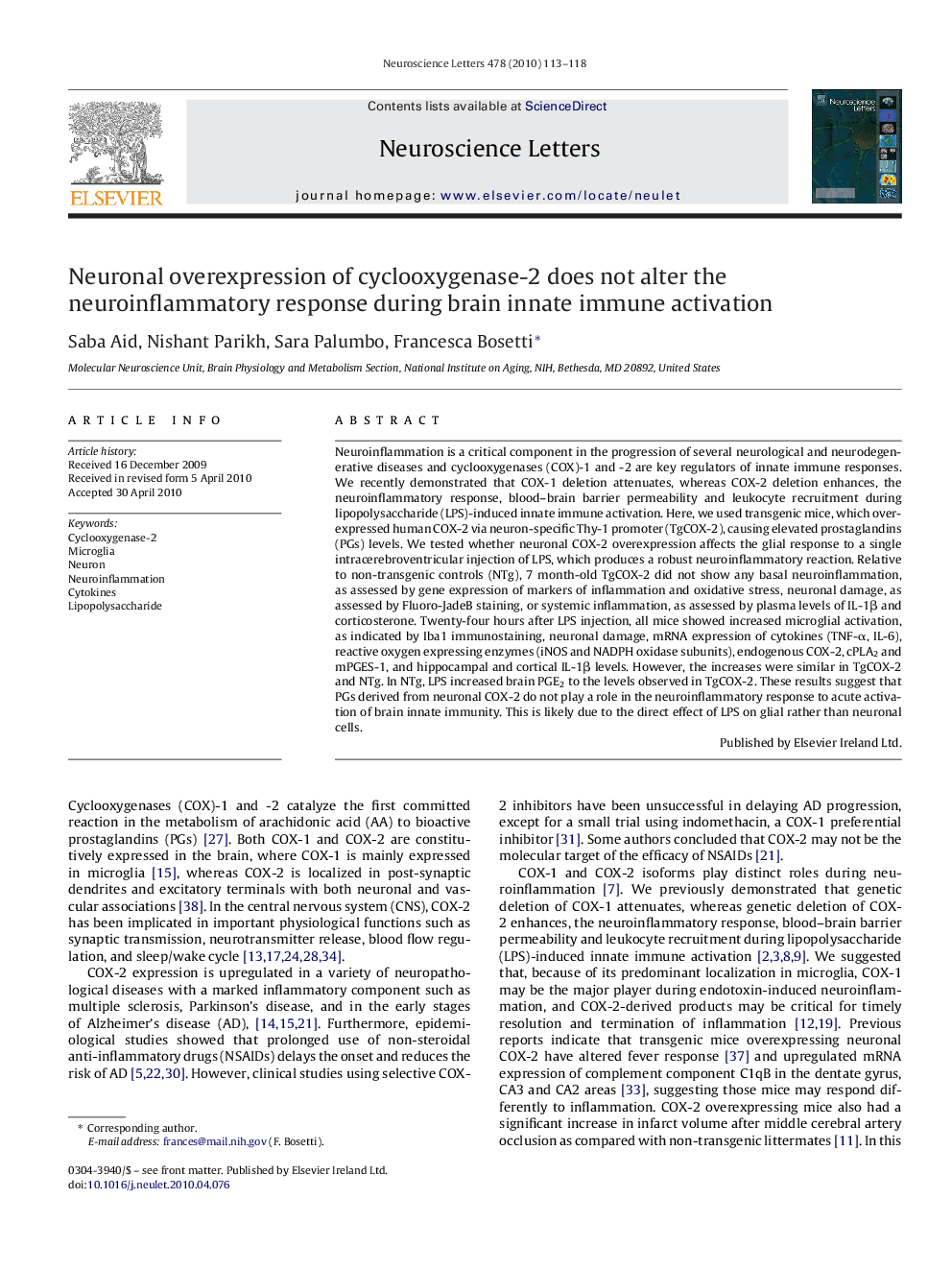| Article ID | Journal | Published Year | Pages | File Type |
|---|---|---|---|---|
| 4346104 | Neuroscience Letters | 2010 | 6 Pages |
Neuroinflammation is a critical component in the progression of several neurological and neurodegenerative diseases and cyclooxygenases (COX)-1 and -2 are key regulators of innate immune responses. We recently demonstrated that COX-1 deletion attenuates, whereas COX-2 deletion enhances, the neuroinflammatory response, blood–brain barrier permeability and leukocyte recruitment during lipopolysaccharide (LPS)-induced innate immune activation. Here, we used transgenic mice, which overexpressed human COX-2 via neuron-specific Thy-1 promoter (TgCOX-2), causing elevated prostaglandins (PGs) levels. We tested whether neuronal COX-2 overexpression affects the glial response to a single intracerebroventricular injection of LPS, which produces a robust neuroinflammatory reaction. Relative to non-transgenic controls (NTg), 7 month-old TgCOX-2 did not show any basal neuroinflammation, as assessed by gene expression of markers of inflammation and oxidative stress, neuronal damage, as assessed by Fluoro-JadeB staining, or systemic inflammation, as assessed by plasma levels of IL-1β and corticosterone. Twenty-four hours after LPS injection, all mice showed increased microglial activation, as indicated by Iba1 immunostaining, neuronal damage, mRNA expression of cytokines (TNF-α, IL-6), reactive oxygen expressing enzymes (iNOS and NADPH oxidase subunits), endogenous COX-2, cPLA2 and mPGES-1, and hippocampal and cortical IL-1β levels. However, the increases were similar in TgCOX-2 and NTg. In NTg, LPS increased brain PGE2 to the levels observed in TgCOX-2. These results suggest that PGs derived from neuronal COX-2 do not play a role in the neuroinflammatory response to acute activation of brain innate immunity. This is likely due to the direct effect of LPS on glial rather than neuronal cells.
